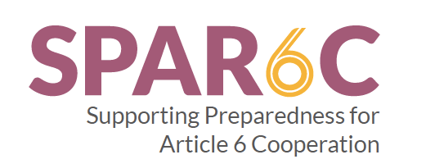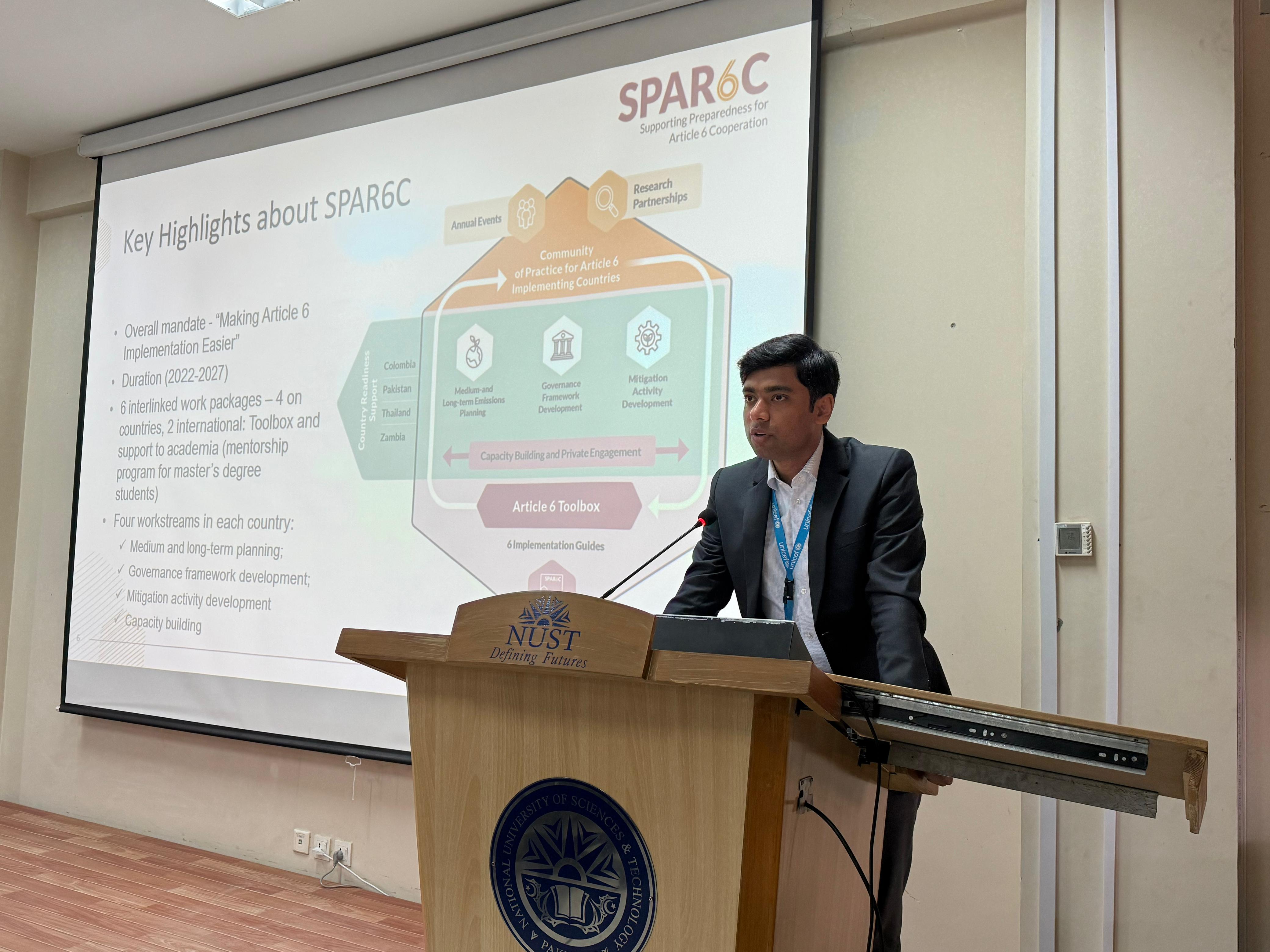Academia can play a vital role in supporting governments to implement Article 6 of the Paris Agreement with strong environmental and social safeguards.
By building local capacity, fostering interdisciplinary research, and training the next generation of experts, universities can help ensure that carbon market mechanisms are not only technically sound but also socially inclusive and environmentally responsible.
In October of 2025, UNEP Copenhagen Climate Centre, visited eight university departments in Colombia as part of the Supporting Preparedness for Article 6 Cooperation (SPAR6C) programme to increase collaboration, share knowledge and promote international opportunities for knowledge sharing and capacity building on Article 6 carbon markets.
Promoting high climate ambitions
The visits started with an introductory lecture on carbon markets as a mechanism to promote higher ambition in climate mitigation, and an encouragement to students interested in a career in addressing climate change to consider a pathway into the quickly growing field of carbon markets.
The universities represented a broad spectrum of academic disciplines, and professors and students with a wide range of backgrounds were introduced to the SPAR6C
Community of Practice for Article 6 Implementing Countries (CoP-ASIC).
Carbon market mentorship programme
To support students interested in a career in carbon markets, UNEP Copenhagen Climate Centre is leading the SPAR6C’s Research Mentorship Programme (RMP).
The RMP is designed to offer training in carbon markets and Article 6, and individual tutoring on how to apply Article 6 concepts to students specific graduate research projects.
Participants in the RMP are also offered a six-month paid internship to put their knowledge into practice in industry, government, NGO, or research institution.
Applications are currently being accepted for the 3rd and final call for the RMP in the SPAR6C countries, Colombia, Pakistan, Thailand and Zambia. In Colombia five graduate students from the country will join the programme in 2026.
Colombia call for RMP applications
Pakistan call for RMP applications
Thailand call for RMP applications
Zambia call for RMP applications
Sharing mentorship experiences
Former alumni from the RMP, including Brigitte Castañeda (2024 cohort) and Mabell Ruiz (2025 cohort) also joined to speak to the students about their experiences in the RMP at their respective universities.
Discussion followed on different aspects of Article 6, including the role of markets in mitigating climate change, social and community aspects, incentives for business owners, the role of technology and innovation, and the process of permitting and approving Article 6 projects, and the monitoring, reporting and verification of mitigation activities.
Global knowledge networks
In addition to promoting the call for the 3rd RMP cohort, interested professors were invited to join the Colombian National Knowledge Network, a transdisciplinary network of academics and practitioners supporting the developing of strategies and safeguards for the government to better navigate Article 6.
All four SPAR6C countries have established National Knowledge Networks bringing together academics and practitioners.
The Colombian National Knowledge Network has met biannually since its creation at the inception of the SPAR6C program, and has produced key materials, such as a book on social and environmental safeguards in the Colombian context and training materials for Article 6.





